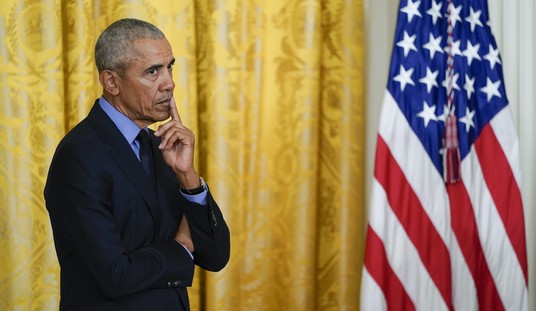Justice Kagan hardly let the word “coercion” leave Mr. Clement’s mouth before she hit him with a very blunt question: “Why is a big gift coercive?”
Therein lies the major distinction at the heart of the Medicaid expansion battle. Is it really a gift? Or is it “an offer the states can’t refuse,” as Justice Scalia – quoting Vito Corleone – said?
Mr. Clement charged that the Medicaid expansion presented an unconstitutional breach of the principles of federalism. He argued that the states had no choice considering that the program in question is so big, and that the states must accept new funding to cover new enrollees or risk losing all federal funding for preexisting Medicaid enrollees.
Justice Breyer then jumped into the fray, arguing that the states wouldn’t lose that old Medicaid funding for sure; rather, Congress said that states could lose that funding “at the discretion of the Secretary of Health and Human Services.” This is familiar language, he said, and the Court has never had reason to strike it down before now.
Mr. Clement pushed back, noting that the government has had every opportunity to say, “Fear not, states, if you don’t want the new money, then that’s all you’ll lose.” Yet they didn’t, and the fact of this power’s existence is inherently coercive.
Recommended
Justice Sotomayor didn’t care for the idea that granting the states more of the federal government’s money also entitled the states to a greater say in how that money was used. Chief Justice Roberts noted that since the New Deal era, the states have become more dependent on the feds. Now, suddenly, they’re apprehensive about that dependence?
The Chief Justice also wished to know what was coercive: the huge amount of money the federal government was offering, or the “old” Medicaid money they were taking away?
Mr. Clement said both: no one in Congress wanted the states to refuse the new money and end the old program. Thus, they designed the terms in such a way that the states had no choice but to comply.
Interestingly, the Justices found the debate so engrossing that they allowed it to continue for an additional fifteen minutes. Those who said this would be an easy argument for them – and I admit, I may have been in that crowd – were very wrong.
Donald Verrilli then approached the bar again, and almost immediately, Justice Scalia asked, “What did we mean” when the Court said coercion could exist. The Chief Justice, too, pushed hard for an example. Mr. Verrilli stumbled about and never gave a specific example, prompting Justice Scalia to remark, “I couldn’t think of one, so I’m not blaming you for thinking of one” either.
Talk then turned to the power for the Secretary to revoke preexisting Medicaid funding. Chief Justice Roberts wanted to know if it was common for an “unrelated threat” to be made in association with new funding. Mr. Verrilli cited an example of one in Arizona.
Justice Kagan then did as she had yesterday, effectually making one of Mr. Verrilli’s points for him. She noted that the Secretary may have this power, but she doesn’t want to use it, as it would take away healthcare for poor, ill people. Thus, she’ll sit down with the states, they’ll work out the kinks they don’t like in the plan, and they won’t lose their funding. This is in direct contrast with Mr. Clement’s argument that simply possessing that power is coercive.
However, Chief Justice Roberts made a key distinction that hinted at his willingness to deem the expansion coercive. He noted the “fiscal reality” that the government may revoke some of their now-promised Medicaid funding in the future. At the moment, the states are only on the hook for 10% of the new Medicaid funding. But he postulated that in the future, budgetary constraints on Congress could lead them to take away more of that funding, thereby leaving the states on the hook for perhaps 20% of those costs.
He then turned to the relevant precedent, South Dakota v. Dole, and pointed out that the federal funding South Dakota was suing for was just 7% of their highway funding. It’s a trivial amount, especially when compared to the amount at stake with Medicaid.
The Justices seemed less skeptical of the coercion charge than previously anticipated. Even Justice Kennedy noted that the states had “no real choice” but to accept the money. It’s hard to imagine they’ll use this as the defining limit of the coercion test laid out in Dole. But it’s certainly not impossible.

























Join the conversation as a VIP Member